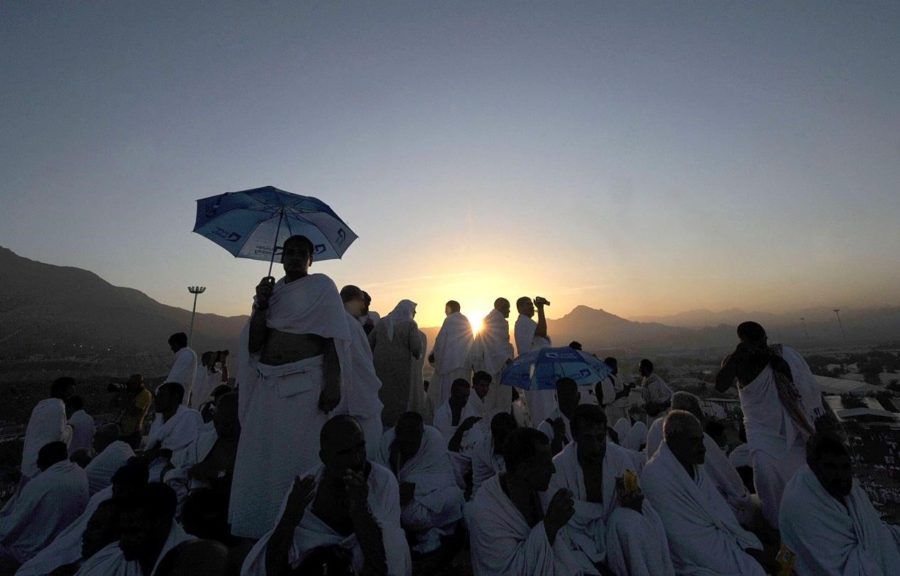
Virtues of the Day of Arafah
By Muhammad Solaiman
What is the day of Arafah?
The Day of Arafah falls on the 9th day of Dhul-Hijjah which is the last month in the lunar Islamic Calendar. It is the second day of Hajj (pilgrimage). The day after Arafah is the first day of the Feast of Sacrifice (Eid al-Adha). At dawn of the Day of Arafah, Muslim pilgrims make their way from Mina to the plain of the Mount Arafah. On Mount Arafah, the Prophet Muhammad (PBUH) gave his last sermons in the final year of his life.
Arafah is a rehearsal of the Day of Judgement
On Arafat Day, Allah gives us the chance to experience how it will be like on the Day of Judgement. Pilgrims stream to gather in Arafah as all humans will do on the day of resurrection.
The Ihram clothing of the pilgrims removes all differences in wealth, colour or social status. Therefore, the Day of Arafat is like a small gathering to rehearse the great gathering of the Day of Judgement.
“And every one of them will come to Him alone (without any helper, or protector or defender)” (Qur’an 19:95).
Virtues of the Day of Arafah
Sheikh Muhammad Salih Al-Munajjid was asked, “What are the virtues of the Day of Arafah?” This is what he said:
- It is the day on which the religion of Islam was perfected:
It was reported that a Jewish man said to Umar Ibn Al-Khattab, “There is a verse in your Book which you recite; if it had come to us Jews, we would have taken that day as a festival (Eid).” ‘Umar said, “Which verse?” He said: “This day I have perfected your religion for you, completed My favour upon you, and have chosen for you Islam as your religion” (Qur’an 5:3). ‘Umar said, “We know on which day and in which place that was revealed to the Prophet (PBUH). It was when he was standing in ‘Arafah on a Friday.” (Narrated by Al-Bukhari)
- It is a day of the festival (Eid) for the people who are in Arafah:
“The day of Arafat and the day of sacrifice and the days of At-Tashriq ((the three days following the day of sacrifice) are festival (Eid) for us, the people of Islam, and they are days of eating and drinking.” (Narrated by An-Nasa’i)
- It is a day by which Allah has sworn an oath.
The Almighty would not swear by anything except that which is mighty. Allah says in the Qur’an:
“By the Promised Day. And by the witness and what is witnessed” (Qur’an 85:3).
It was reported that the Prophet (PBUH) said: “The promised day is the Day of Resurrection, the witnessed day is the Day of ‘Arafah, and the witnessing day is Friday.” (Narrated by al-Tirmidhi).
It is also the “odd” by which Allah swore when He said, “And by the even and the odd.” (Quran 89:3). Ibn Abbas said, “The even is the Day of Al-Adhaa (i.e. the 10th day of the Islamic month of Dhul-Hijjah, which is the Day of Eid of sacrifice) and the odd is the Day of Arafah (i.e. the 9th of Dhul-Hijjah).
- Fasting on the day of Arafah is an expiation for two years:
It was reported that the Messenger of Allah (PBUH) was asked about fasting on the Day of ‘Arafah. He said, “It expiates for the sins of the previous year and the coming year” (Narrated by Muslim).
The fasting of the day of Arafah is recommended for those who are not on Hajj. In the case of the one who is on Hajj, it is not Sunnah (traditional) to fast on the Day of ‘Arafah, because the Prophet (PBUH) did not fast on that day and he forbade fasting on the Day of ‘Arafah in ‘Arafah.
- It is the day when Allah took the covenant from the progeny of Adam:
The Messenger of Allah (PBUH) said: “Allah took the covenant from the loins of Adam in the day of Arafah.
“And when Your Lord summoned the descendants of Adam and made them testify about themselves, ‘Am I not your Lord?’ They said, ‘Yes, we testify.’ Thus you cannot say on the Day of Resurrection, “We were unaware of this” (Qur’an 7:172) (Narrated by Ahmad).
- It is a day when Allah forgives sins and expresses His pride to Angels:
It was narrated that the Prophet (PBUH) said: “There is no day on which Allah sets free more slaves from Hell than He does on the Day of ‘Arafah. He draws near, then praises them to the angels, saying: What do these want?” (Narrated by Muslim).

